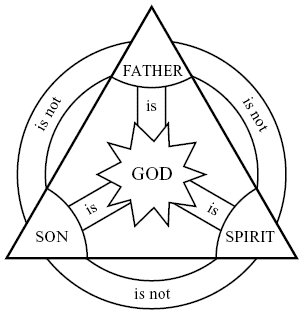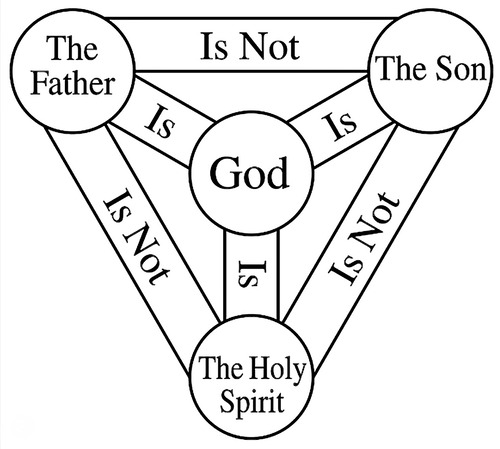Unveiling Reprobation: Does Scripture Truly Teach This Difficult Doctrine?
Unveiling Reprobation: Few doctrines in Scripture challenge our human sensibilities more, perhaps, than reprobation—the teaching that God, in His sovereign wisdom, has determined not to save some individuals. For many, even thinking about it produces deep unease. How can a loving God choose not to save some? Doesn’t this contradict His desire that none should perish? These questions touch the very heart of how we understand God’s character, His sovereignty, and His purposes in salvation. Rather than avoiding this difficult teaching or accepting traditional interpretations without examination, let’s look carefully at what Scripture actually says…
- First, let’s consider what Scripture actually teaches about God’s role in salvation and judgement.
- Second, having engaged honestly with these passages, let’s wrestle with the profound questions they raise.
- Finally, let’s consider what makes the Reformed perspective more compelling than its alternatives.
- UNVEILING REPROBATION: WHAT DOES SCRIPTURE ACTUALLY TEACH?
To understand reprobation, or Double Predestination as its also known, we must begin with Scripture’s own testimony, examining key passages in their context without immediately trying to soften their implications. Several texts speak with striking clarity about God’s sovereign role in both salvation and reprobation.
The Most Explicit Treatment: Romans 9:14-24
Perhaps the most thorough biblical discussion of reprobation appears in Romans 9. Here, Paul anticipates and addresses the very objections that naturally arise when considering this doctrine. After discussing God’s sovereign choice of Jacob over Esau, he writes:
*”What shall we say then? Is there injustice on God’s part? By no means! For he says to Moses, ‘I will have mercy on whom I have mercy, and I will have compassion on whom I have compassion.'” (Romans 9:14-15)
Paul then develops his argument using the potter-clay metaphor, reaching its climax in verses Romans 9:21-23:
Several crucial points emerge:
- Paul frames this as a matter of God’s rights as Creator
- He speaks of vessels specifically prepared for destruction
- This preparation serves God’s purpose of displaying both His wrath and mercy
- Paul presents this as God’s active choice, not merely His passive foreknowledge
Divine Purpose in Both Salvation and Judgement: Proverbs 16:4
Solomon states with striking directness: “The LORD has made everything for its purpose, even the wicked for the day of trouble.” This text suggests even the existence of the wicked serves God’s sovereign purposes. It’s not that God merely uses evil people opportunistically; rather, their very existence fulfils His predetermined plan.
Predestined to Stumble: 1 Peter 2:8
Peter’s discussion of Christ as the cornerstone includes a startling statement about those who reject Him: “They stumble because they disobey the word, as they were destined to do.” Note carefully:
- Their stumbling is linked to their disobedience
- Yet this was their destiny
- Peter presents both human responsibility (they disobey) and divine determination (they were destined to do so)
The Nature of Our Spiritual Inability: John 6:44
Jesus declares: “No one can come to me unless the Father who sent me draws him.” This text establishes:
- Human inability to come to Christ independently
- The necessity of divine drawing for salvation
- The selective nature of this drawing (not everyone is drawn)
God’s Role in Repentance: 2 Timothy 2:24-25
Paul instructs Timothy about dealing with opponents: “The Lord’s servant must not be quarrelsome but kind to everyone… God may perhaps grant them repentance leading to a knowledge of the truth.” This reveals that:
- Repentance itself is a gift from God
- He may or may not grant it (“perhaps”)
- Even our response to truth depends on divine enabling
Together, these passages present a consistent picture: God actively determines the eternal destiny of individuals, not merely in response to foreseen choices but according to His sovereign purpose. This teaching appears not as a peripheral doctrine but woven into Scripture’s presentation of salvation, divine sovereignty, and human responsibility.
This raises profound questions about divine justice and love—questions we’ll address in our next section. But we must first let these texts speak with their full force, resisting the temptation to immediately soften their meaning. The Bible’s teaching on reprobation, though difficult, is clearer than we realise.
- II. RECONCILING REPROBATION WITH GOD’S CHARACTER
When confronted with the biblical evidence for reprobation, we face profound questions about God’s character. How do we reconcile this doctrine, for instance, with what Scripture plainly teaches about God’s love and justice?
The Justice Question
The immediate objection mirrors what Paul anticipated: “What shall we say then? Is there injustice on God’s part?” (Romans 9:14). To understand why the answer is “By no means!”, we must consider several key points:
- The Reality of Human Guilt: Every person stands guilty before God, deserving judgment. No one seeks God on their own (Romans 3:10-11). The real mystery isn’t why some aren’t saved, but why any are saved at all, as Paul argues.
- The Nature of Divine Justice: God would be perfectly just to condemn all humanity. Salvation is never a matter of justice but always of mercy. Justice is getting what we deserve; mercy is not getting what we deserve.
- Creator Rights: As Creator, God has rights over His creation that none of us has over another. The potter-clay analogy demonstrates this fundamental Creator-creature distinction. Our sense of justice must submit to God’s revealed character, not vice versa.
The Love Question
“But doesn’t Scripture say God loves the world (John 3:16) and desires all to be saved (1 Timothy 2:4)?” This objection requires careful consideration:
- Different Aspects of God’s Love: God has a general love for all of His creation, and a particular, saving love for His elect. Both loves are real, but distinct in nature and purpose.
- God’s Revealed Will vs. His Decreed Will: God genuinely offers salvation to all. Yet He has decreed not all will receive it. Both truths are found in Scripture, and both must be maintained without diminishing either.
- The Ultimate Display of Love: Reprobation serves to highlight the magnitude of God’s saving love, just as the darkness of judgement enhances the brightness of mercy. God’s love is magnified, not diminished, by its particularity.
III. UNVEILING REPROBATION: WHY THE REFORMED VIEW MAKES THE MOST SENSE
When we examine each competing theological approach to these difficult texts, the Reformed perspective provides the most coherent and satisfying explanation. Here’s why:
Biblical Consistency: The Reformed view:
- Takes all relevant passages at face value
- Doesn’t need to reinterpret clear statements about God’s sovereignty
- Maintains both divine sovereignty and human responsibility
- Accounts for both God’s universal calls and particular election
The alternative views often weaken clear biblical statements, create artificial distinctions not found in Scripture, elevate human free will above biblical testimony, and struggle with texts about God’s comprehensive sovereignty
Theological Coherence: The Reformed position:
- Presents a consistent view of God’s sovereignty
- Maintains God’s absolute control over salvation
- Preserves both divine justice and mercy
- Explains why salvation is all of grace
The competing views often make salvation ultimately dependent on human choice; reduce God’s sovereignty to mere foreknowledge; struggle to explain why some believe and others don’t; inadvertently make human decision the decisive factor.
Pastoral Power: While seemingly harsh, the Reformed view actually provides:
- Greater assurance of salvation (it rests on God’s choice, not ours)
- Deeper appreciation of grace (salvation is entirely of God)
- Stronger motivation for evangelism (God will save His elect)
- Greater humility in salvation (none of us contributes anything)
Philosophical Consistency: The Reformed understanding:
- Maintains God’s absolute sovereignty without compromise
- Preserves genuine human responsibility
- Accounts for both divine prediction and human choice
- Explains how God can be both just and merciful
Historical Support: This view:
- Aligns with historical Christian interpretation
- Represents the understanding of many profound biblical thinkers
- Has withstood centuries of theological scrutiny
- Provides the most satisfying explanation of difficult texts
CONCLUSION: UNVEILING REPROBATION
The doctrine of reprobation reveals God’s comprehensive sovereignty. Far from presenting a capricious deity, Scripture portrays a perfectly just God whose redemptive purposes include both mercy and judgement.
The other views, while attempting to soften the doctrine’s difficulty, ultimately create more problems than they solve. The Reformed perspective, though humbling, offers the most biblically faithful and theologically coherent understanding of this profound truth. The Reformed view:
- Best accounts for all biblical evidence
- Maintains theological consistency
- Provides pastoral comfort
- Preserves divine sovereignty
- Upholds human responsibility
We’re called not to fully comprehend, but to worship. In the mystery of divine election, we find not a cold theological construct, but an invitation to marvel at the sheer depths of God’s wisdom and grace.
UNVEILING REPROBATION: RELATED FAQs
What is Reprobation? Reprobation or double predestination refers to God’s sovereign decree concerning both election and reprobation. While God actively chooses and draws the elect to salvation (positive predestination), He passes over others, leaving them in their willing rebellion (negative predestination). These are not equal ultimates—God actively works salvation in the elect but permissively leaves the reprobate to their chosen sin.
How can God be loving if He chooses not to save everyone? God’s love is displayed in different ways—a general love for all creation and a special, saving love for His elect. All humans deserve judgment due to sin, so the real mystery isn’t why some aren’t saved but why God saves any. His mercy in saving some displays His love while His justice in judging others displays His righteousness.
Does reprobation mean God forces people to sin? No, reprobation doesn’t mean God forces anyone to sin. People sin willingly according to their own nature and desires, yet God sovereignly works even through their willing choices to accomplish His purposes. The reprobate are responsible for their sin while God remains sovereign over all outcomes.
What’s the difference between election and reprobation? Election is God’s active choice to save some, including His work of drawing them to faith. Reprobation is God’s decision to pass over others, leaving them in their freely chosen sin. Election involves God’s direct, saving intervention, while reprobation involves His just decision not to intervene with saving grace.
If God chooses who will be saved, why should we evangelise? We evangelise because God commands it and uses our faithful witness as His means of calling His elect. Far from discouraging evangelism, the doctrine of election gives us confidence that our evangelistic efforts will bear fruit as God draws His chosen ones through the preaching of His Word. commands it and uses our faithful witness as His means of calling His elect. Far from discouraging evangelism, the doctrine of election gives us confidence that our evangelistic efforts will bear fruit as God draws His chosen ones through the preaching of His Word.
Doesn’t Romans 2:4 say God’s kindness leads to repentance? How does this fit with reprobation? God’s kindness does lead to repentance, but only in those whom He enables to respond. The fact that some experience God’s kindness yet don’t repent demonstrates that divine kindness alone doesn’t guarantee repentance—it requires God’s sovereign work of regeneration. This common grace to all magnifies both God’s genuine goodness to all creatures and His particular saving grace to the elect.
What about 2 Peter 3:9, “God is not willing that any should perish”? This verse, in context, refers to God’s patience toward “us” (the elect) – He delays Christ’s return until all His chosen people come to repentance. The text doesn’t teach universal salvation but rather that God will save all those He intends to save. This perfectly aligns with God’s revealed character as both just and merciful, accomplishing all His holy will.
UNVEILING REPROBATION: OUR RELATED POSTS
Editor's Pick

Paul’s Mandate for Men: Headship Or Servant Leadership? Or Both?
Modern Christianity has fallen into a trap. We've created an either/or battle between "headship" and "servant leadership," as if these [...]

Should We Stop Using Male Pronouns for God? Why Do We Say No?
A friend of ours arrived eagerly at his first theology class in seminary. But he quickly discovered something troubling: the [...]

Did Old Testament Law Force Women to Marry their Rapists?
**Editor’s Note: This post is part of our series, ‘Satan’s Lies: Common Deceptions in the Church Today’… Viral misinformation abounds [...]

From Danvers To Nashville: Two Statements, One Biblical Vision
30 years separate the Danvers Statement on Biblical Manhood and Womanhood (1987) and the Nashville Statement on Human Sexuality (2017). [...]

The Nashville Statement: Why Affirm It Despite Media Backlash?
WHY DO REFORMED CHRISTIANS STAND BY THIS STATEMENT ON MARRIAGE AND GENDER? When the Nashville Statement was released in 2017, [...]

Who Is Belial? Solving The 2 Corinthians 6:15 Mystery
Belial: This name from the pages of Scripture chills the soul. Who is this mysterious figure Paul invokes in 2 [...]

Celibacy Or Castration: What Jesus Really Means in Matthew 19:12
One of Scripture's most shocking misinterpretations led theologian Origen to castrate himself in the third century. His tragic mistake? Taking [...]

Philippians 4:13: Did Paul Really Mean We Can Do ALL Things?
"I can do all things through Christ who strengthens me." It's on gym walls, graduation cards, and motivational posters everywhere. [...]

The Ordinary Means of Grace: Why Are They Indispensable?
ORDINARY MEANS FOR EXTRAORDINARY TRANSFORMATION What if God's most powerful work in believers' lives happens through the most ordinary activities? [...]

Is the Bible God’s Word? Or Does It Only Contain God’s Word?
The authority of Scripture stands at the crossroads of modern Christianity. While some argue the Bible merely contains God’s Word [...]
SUPPORT US:
Feel the Holy Spirit's gentle nudge to partner with us?
Donate Online:
Account Name: TRUTHS TO DIE FOR FOUNDATION
Account Number: 10243565459
Bank IFSC: IDFB0043391
Bank Name: IDFC FIRST BANK






